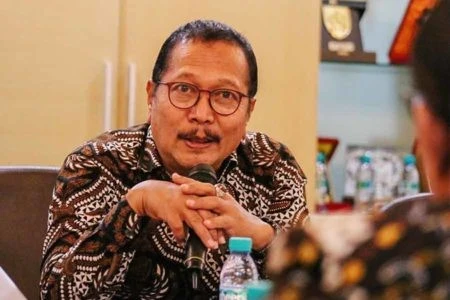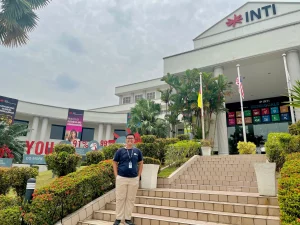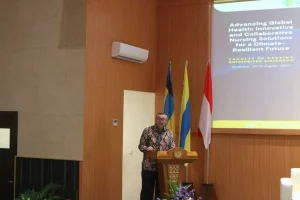UNAIR NEWS – The government is currently drafting a new policy regarding salary deductions to fund pension savings. This policy is aimed at safeguarding workers’ financial security in their old age. However, the proposed plan has sparked concerns among workers who already feel burdened by multiple deductions.
On this regard, Gitadi Tegas Supramudyo, a public policy expert from Universitas Airlangga (UNAIR), shared his perspective. He argues that the policy should be rooted in a deep understanding of the core issues the government is attempting to address.
“Every policy should weigh who benefits and who bears the cost. In this instance, there are two primary groups: the government, which seeks to ensure workers’ welfare in their later years, and the workers themselves, who feel already burdened by numerous deductions and have conflicting interests,” Supramudyo explained.
The UNAIR Department of Public Administration lecturer also underscored the need for a thorough evaluation to find a solution that serves both parties. “This policy must prioritize the public interest of workers and secure their retirement welfare,” he emphasized.
Additional burden for workers
Supramudyo also highlighted that salary deductions will undoubtedly impose a financial strain on workers, especially those with low incomes. Therefore, a well-thought-out communication strategy is crucial to avoid public backlash.

Given the low level of public trust in the government, he believes that this policy risks further eroding confidence. He argued that the public might perceive the policy as a one-sided effort without any contribution from the government.
“The focus should not be on the salary cuts but on how these funds will protect workers in their old age. The government must also demonstrate its role in the scheme, so it does not appear to be merely placing the burden on workers and companies,” Supramudyo explained.
He further recommended that the government should first map out and assess the various existing pension programs in Indonesia before enacting any new policy. “Pension plans differ widely, especially for civil servants who receive 80% of their last basic salary. Severance pay is often an option for state-owned enterprises (SOEs) and large private companies, with amounts varying based on internal policies,” he explained.
Supramudyo also stressed the importance of devising a fairer framework that involves a representative team from diverse sectors. “A more equitable approach must be developed through a team representing various sectors to ensure a solution that benefits all parties,” he added.
As an alternative, he proposed that companies directly provide insurance coverage, which could serve as a feasible option for lower-wage workers. He also emphasized that salary deductions alone cannot be considered a comprehensive solution. “While salary deductions may be an alternative, the state must also bear part of the pension fund costs, especially for low-income workers,” Supramudyo concluded.
Author: Aidatul Fitriyah
Editor: Edwin Fatahuddin









